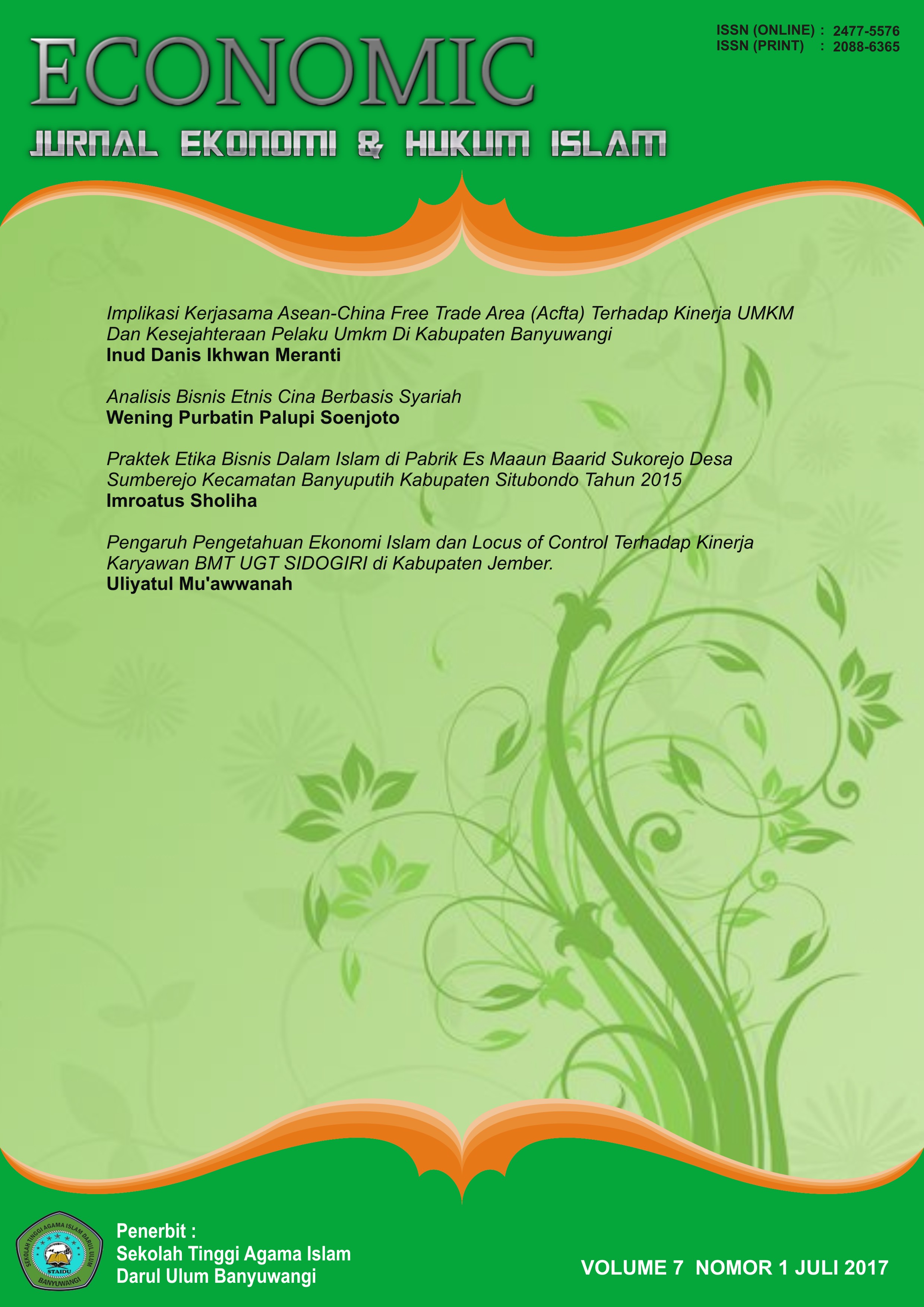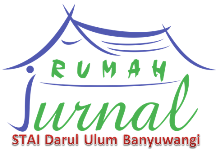Praktek Etika Bisnis Dalam Islam di Pabrik Es Maaun Baarid Sukorejo Desa Sumberejo Kecamatan Banyuputih Kabupaten Situbondo Tahun 2015
Abstract
In the business world factory and the Vendor will not be separated from good business practice that is ethically or not. We as Muslim entrepreneurs are required to carry out the appropriate business ethics practices Islam. One of them is the Ice Factory Maaun Baarid, in practice the Ice Factory Maaun Baarid run (1) Ethics production (2) Ethics distribution (3) Ethics sale (4) Examining linkages graduate and trustees Salafiyah Shafi'ites boarding school students to the development of the ice factory Maaun Baarid Sukorejo. The focus of the issues examined in this thesis are: 1) How is the practice of Islamic business ethics in terms of production in Ice Factory Maaun Baarid? 2) How does the practice of business ethics in Islam in distribution in Ice Factory Maaun Baarid? (3) How is the practice of business ethics in Islam in terms of promotion in Pabrik Es Maaun Baarid? (4) How is the graduate association Salafi pesantren Shafi'ites the development Maaun Baarid Ice Factory? The purpose of this study is to describe the practice of Islamic Business Ethics at the Ice Factory Maaun Baarid Sukorejo in terms of ethical production, distribution, promotion and linkage graduate and trustees Salafiyah Shafi'ites boarding school students to the development of the ice factory Maaun Baarid. This study uses qualitative descriptive method and using the instruments of observation, interview and documentation. While date analysis using descriptive analysis techniques that describe qualitatively while doing research, with an emphasis on Islamic Business Ethics Practices in Ice Factory Maaun Baarid Sukorejo. By understanding, observing and describing business applications that are there primarily associated with the ethics of production, distribution, promotion as well as the graduate association boarding schools and guardians of students to the development Maaun Baarid Ice Factory. Then to obtain the validity of the date using triangulation sources. The study came to the conclusion (1) Ethics of production in the form of giving quality products, have skilled employees with included training, work with sincerity and could read the opportunities (2) Ethics distribution in the form of keeping the integrity of the goods, the speed of arrival of goods, fairness in distribution (3) Ethics sale form of piety, well behaved, to be fair, to be served, keeping promises, honest and trustworthy, not prejudiced, does not like to speak ill, not to bribe (4) Establishing a business partner with the graduate brought fortunatelly cooperation. Key words: Practices Business Ethics In Islam
Published
2017-07-09
How to Cite
Sholiha, I. (2017). Praktek Etika Bisnis Dalam Islam di Pabrik Es Maaun Baarid Sukorejo Desa Sumberejo Kecamatan Banyuputih Kabupaten Situbondo Tahun 2015. Economic: Journal of Economic and Islamic Law, 7(1), 49-65. Retrieved from https://ejournal.kopertais4.or.id/tapalkuda/index.php/economic/article/view/3549
Section
Articles
Copyright (c) 2017 Economic: Journal of Economic and Islamic Law

This work is licensed under a Creative Commons Attribution-ShareAlike 4.0 International License.
Authors who publish with this journal agree to the following terms:
- Authors retain copyright and grant the journal right of first publication with the work simultaneously licensed under a Creative Commons Attribution License that allows others to share the work with an acknowledgement of the work's authorship and initial publication in this journal.
- Authors are able to enter into separate, additional contractual arrangements for the non-exclusive distribution of the journal's published version of the work (e.g., post it to an institutional repository or publish it in a book), with an acknowledgement of its initial publication in this journal.
- Authors are permitted and encouraged to post their work online (e.g., in institutional repositories or on their website) prior to and during the submission process, as it can lead to productive exchanges, as well as earlier and greater citation of published work (See The Effect of Open Access).







